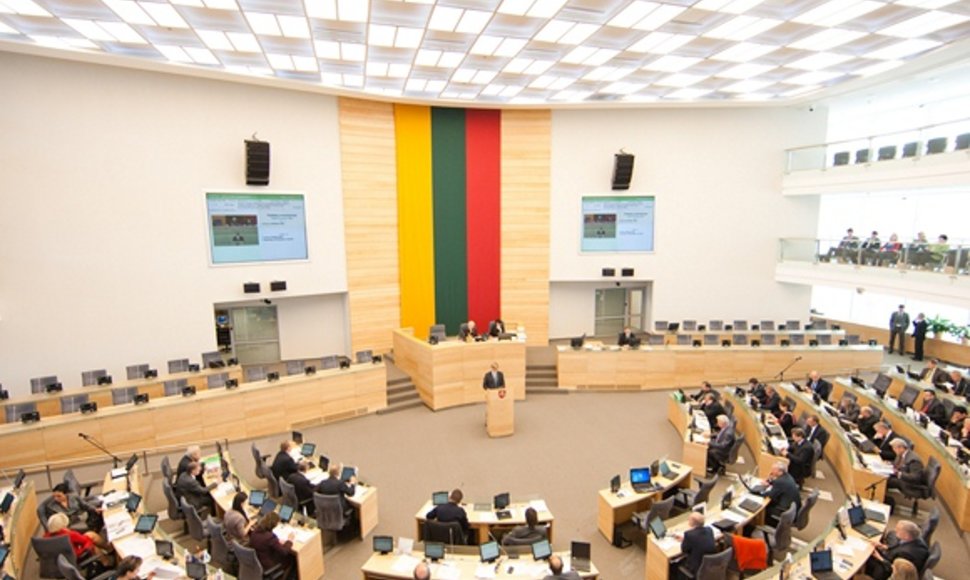The parliament gave its initial backing to the draft document after 67 lawmakers voted in favor, 4 were against and 12 abstained.
"The treaty will, first of all, send a signal to international markets that the saving policy that hit our citizens so painfully but helped to recover from the deepest economic crisis over the last 20 years will be continued, and that we'll join those who are in favor of responsible management of public financial affairs, who count money responsibly and spend what they earn. It would mean we are on the side of those who think and act this way. This signal would be also important for Lithuania's international ratings and partners' trust in us," Minister of Foreign Affairs Audronius Azubalis said on Tuesday presenting the draft treaty.
The minister also rejected MPs' claims the treaty would undermine Lithuania's financial independence.
Julius Veselka, a member of the parliamentary Committee on Economic Affairs, said the treaty "would tie Lithuania's hands". "Countries with weaker economies but the same principles of financial regulation as developed countries will always find themselves in economic difficulties. For example, Spain, Greece, Ireland, Italy… We have an is even weaker economy," he said.
The Treaty on Stability, Coordination and Governance in the Economic and Monetary Union was signed on March 2, 2012 by all European Union states except the United Kingdom and the Czech Republic. The treaty has already been ratified by Greece, Portugal, Slovenia, Romania and Ireland.
The Ministry of Foreign Affairs has proposed including a rule of balanced budget in the country's Constitution or in a constitutional act.
2012 06 06
EU fiscal discipline treaty submitted to Lithuanian Parliament for ratification
Lithuania's parliament on Tuesday launched debates on President Dalia Grybauskaitė's proposal to ratify the European Union's fiscal discipline treaty, drafted in response to the debt crisis in the euro zone.
Report mistake
Successfully sent
Thank you














